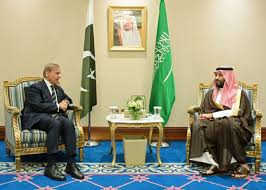UK urged to speed up eligible Afghans’ relocation with thousands still stuck overseas

London: Thousands of Afghans eligible to live in the UK are still waiting for relocation two years after their country fell to the Taliban, with an increase in the number of claims rejected in the past few weeks drawing condemnation from senior politicians and military figures.
The Afghan Relocations and Assistance Policy applications of at least 18,000 Afghans who worked with British forces remain unresolved, while 3,400 people whose applications have been approved are stuck in Afghanistan or neighboring Pakistan. Just 35 people have been relocated to the UK since December 2022.
Ministers said in 2021 the UK would “shift Heaven and earth” to move vulnerable Afghan allies to Britain.
The Independent said the Ministry of Defence has sped up its processing of applications in a bid to clear the backlog by the end of August.
Of the 141,000 applications to have been received by the MoD since the scheme’s launch, just 3,527 have been approved. The paper claimed 36,000 ARAP applications had been rejected between the fall of Kabul and June 21 this year, but that in the eight weeks since then, the figure had risen to over 69,000.
In addition, 490 people eligible to come to the UK under a different scheme for at-risk Afghans — the Afghan Citizens Resettlement Scheme — remain trapped in Pakistan. Many there fear for their futures, stuck in temporary accommodation and with visas set to expire.
The MoD told The Independent it had employed 100 staff dedicated to clearing the backlog, adding it had “made huge improvements in our casework processes and systems.”
But Gen. Lord Richards, former chief of the UK defence staff, called on Prime Minister Rishi Sunak to intervene.
He said: “I and many others who had the privilege of serving in Afghanistan alongside our Afghan comrades have been very patient over the last two years, but the confusion and lack of action on the part of government is now beyond the pale and they must resolve this.
“They must now appoint a single minister to grip this disgraceful situation. The prime minister must sort this out personally.”
He was echoed by Gen. Sir Richard Dannatt, the former head of the British Army, who said the process of finding permanent housing for displaced Afghans in the UK needed to be “sped up.”
“It isn’t easy,” he said. “We have to acknowledge that the government and local authorities have a huge housing problem. The system is struggling, but we have a responsibility. Pressure has to be applied on local authorities to find suitable accommodation.”
Gen. Sir John McColl, the former deputy supreme allied commander for Europe, said he and other senior military figures had written to Sunak in July about the “impossible ask” of finding accommodation for Afghans in the UK, but received no reply.
He said: “These are people who fought alongside us, who have been through the very strict ARAP and ACRS tests. These are people who we have a debt to — we have given an undertaking that we will look after them and at the moment we are definitely not doing so.
“As far as I can tell, there is nobody working on it. It’s completely chaotic and what (the government) need is a focus to deliver the plan.”
Labour MP Dan Jarvis, who served with the British Army as a soldier in Afghanistan, told Sunak to “get a grip, get a plan and get these brave men and women to safety.”
Rachel Hopkins, the shadow veterans minister, said: “It’s shameful that thousands of ARAP applications are still to be processed despite the government promising to clear the backlog by the end of this month.”
Many Afghans have also voiced their dismay at the situation, with a former pilot commended as a “patriot” by his Western allies, and who is currently waiting for asylum in the UK, telling The Independent the UK needed to “stick to the covenant” made with Afghan men and women who “fought heroically and sincerely against the common enemy for years.”
A former interpreter stuck in Pakistan told The Independent he was worried for the future of his family as they await the outcome of their application.
He said: “Our Pakistan visas have expired — we cannot go anywhere because of the Pakistani police. Our children have no school or education, we are all jobless and hopeless. The British government make promises but they do not transfer us to the UK.”
A teacher with the British Council said she had been stuck in a hotel in Pakistan for seven months waiting for news.
She said: “I am in a cramped room with no access to education or healthcare. I have no job or income and I have a newborn son, whose life is confined to just one bed. Our visas have expired and we cannot go out for fear the police will send us back to Afghanistan.”
UK Veterans Minister Johnny Mercer told the House of Commons on March 23 that plans for the support of Afghans trapped in Pakistan and abroad would be announced “in due course,” but they have yet to be revealed.
A government spokesperson said: “The UK has made an ambitious and generous commitment to help at-risk people in Afghanistan and, so far, we have brought around 24,600 people to safety, including thousands of people eligible for our Afghan resettlement schemes.
“We continue to honor our commitments to bring eligible Afghans to the UK, and we are issuing new visas to people in Afghanistan and other countries for resettlement here. However, it is vital those arriving have somewhere suitable to stay once they are in the UK, so they can start their new life in the UK.”





